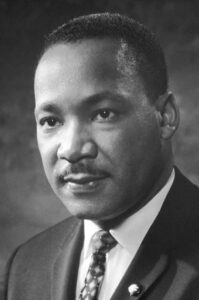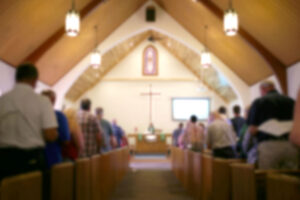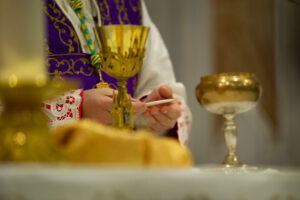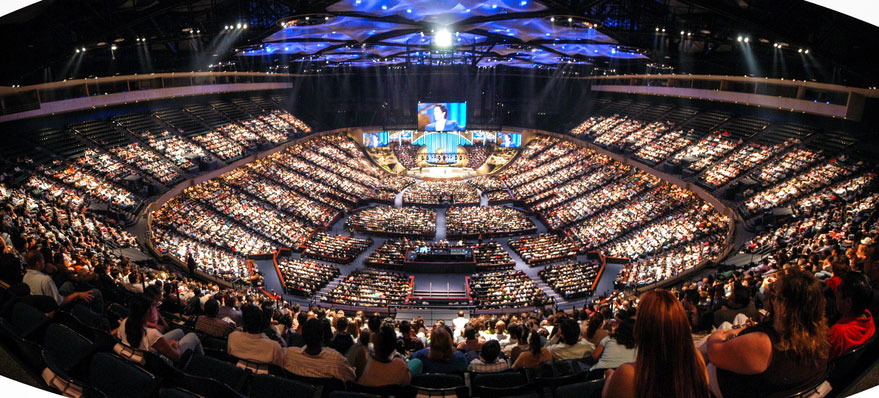Many underestimate the arduous process and steps of becoming a pastor. Faith is a bedrock requirement, but so is hard work. Feeling a call to ministry, as many do, is really only the beginning.

This journey requires both unwavering faith and a tireless work ethic. Aspiring pastors often wonder about the steps to become a pastor, the qualifications required, and how to become a preacher or an ordained minister. It's not a one-size-fits-all process. The pathway varies across different Christian denominations.
Humility defines pastoral roles. It is, after all, a position of seemingly endless service. As a pastor, you are a tool of communication and redemption, a servant in word and in deed. Self-glorification is not in the job description of a pastor, and it’s not in the nature of the best ministers.
Explore a Christian Ministry Degree – Request More Info Today!
So, questions about biblical and doctrinal knowledge, what a pastor degree entails, minister licenses, and the specific qualifications needed to become a pastor are common among those pursuing this vocation. Consequently, understanding the path to becoming a pastor is crucial for those answering the call to ministry.
Some of the highest standards are required of pastors in both matters of spirit and intellect.
Steps to Become a Pastor
The Work of a Christian Pastor Requires Years of Both Spiritual and Secular Preparation
The word pastor means shepherd in Latin. Shepherding offers exactly the right metaphor for the job, and it’s one drawn straight from the Bible.
Be shepherds of God’s flock that is under your care, watching over them—not because you must, but because you are willing, as God wants you to be; not pursuing dishonest gain, but eager to serve; not lording it over those entrusted to you, but being examples to the flock.
~ 1 Peter 5:2-3
Peter's exhortation to pastors sums it up—to feed the flock of God, and to do it by example and with the will of the congregation.
To earn that trust, and to tend that flock, you will have to spend years of contemplation and study. The work of a pastor is never done, and it takes tremendous dedication as well as knowledge to do it well.
How Long Does it Take to Become a Pastor?
From your years as a young undergraduate completing a four-year bachelor's, to the time you'll take to search your soul and volunteer your time after graduation, you can expect to take as many as six years to prepare to give everything you have to earn a Christian master's degree in preparation for a career in ministry. The two to three years you spend earning that master's could very well overlap with the process of becoming ordained through your church if you've been tracked for the ministry, putting you in a position to reach your goal of becoming a pastor in as little as six to eight years from the time you start out as a freshman in college.
There are many paths to becoming a pastor, but it's becoming more and more common for people called to ministry to make the decision early in life, following a straight line from pupil to pastor.
Acquiring the Pastoral Skills to Care for and Support Both Congregation and Community
In order to become a pastor, you'll have to acquire both the skills, the attitude, and the knowledge to act as a shepherd of your congregation:
Pastors tend to their flock - It’s a pastor’s job to know his congregation and develop both their spiritual and physical well-being. A pastor should feel a sense of responsibility for those in his care, and seek to understand their challenges and assist them through difficulties.
Pastors instruct and guide the parish - A pastor needs the theological and religious training to guide the congregation through life according to the doctrine of the church. They are responsible for preparing and delivering sermons with relevance and accuracy, as well as setting the curriculum for Bible studies and Sunday school.
Pastors offer care and consideration to those in need - A pastor is expected to show understanding and compassion to all, offering succor to those in pain and counseling to those in need. A pastor should ease the way for their flock in every challenge that life throws at them, from illness to marital strife.
Pastors lead the way - A pastor’s role is one of leadership. In mundane terms, they make decisions for their church and manage day-to-day issues like budgeting, schedules, and all the other tasks that any organization requires. But the more important leadership role is that of moral leadership. A pastor must know what is right and have the courage and leadership skills to follow that in word and in deed, even in the face of adversity.
Martin Luther King Jr. Changed the World, from the Pulpit and Beyond
 As perhaps the most influential and respected pastor of the 20th century in the United States, Martin Luther King Jr.’s path to the ministry is well-known. But it is also representative of the struggles and studies that many pastors must go through to find their calling.
As perhaps the most influential and respected pastor of the 20th century in the United States, Martin Luther King Jr.’s path to the ministry is well-known. But it is also representative of the struggles and studies that many pastors must go through to find their calling.
King was raised in a firmly Baptist household and was memorizing hymns and Bible verses by the time he was five years old. His mother played piano at the church and King became part of the junior choir.
But as an adolescent, he began to doubt some of the literalist teachings at the church. He rebelled during Sunday school, and denied the bodily resurrection of Christ. His period of rebellion and doubt reflect a phase that many future ministers go through with their beliefs.
By the time he entered college, however, King had reconciled his views with those of the church, and came to the view that it offered the most assured way to fulfill an inner urge to serve humanity. He graduated from Crozer Theological Seminary in 1951 with a Bachelor of Divinity, and received a PhD from Boston University in 1955, the year after he was called as pastor of the Dexter Avenue Baptist Church in Montgomery, Alabama.
Today, it’s the Dexter Avenue King Memorial Baptist Church, and it is designated as a National Historic Landmark. King stands as a model for all pastors of both moral rectitude and courage for forging a path to the pastorate through doubt and obstacles.
Christian Ministry Colleges By State
Learning How To Become a Pastor Will Take You On a 6-Step Personal Journey Through Knowledge and Spirituality
You already know that pastoral work is different. But you might not realize that your path to learning how to become a pastor will also be different from other types of jobs.
Becoming a pastor isn’t a strictly temporal process like setting out on other kinds of career paths. Yes, there will be paperwork to fill out, subjects to study, and skills to learn, just as if you were on your way to being a lawyer or an accountant.
On top of all that, however, there is a deep and mysterious spiritual aspect to embarking on a career as a pastor. It’s a profession you are called to, not one that you choose. You may not feel you have much choice in the matter at all, if the spirit is there. Or you may struggle, as many struggle, to understand yourself and your calling.
It’s a topic you will confront not just at the start of your pathway to pastoral work, but at many moments along the way as well. The answers will not come from textbooks or from instructors, but from your relationship with God.
Explore a Christian Ministry Degree – Request More Info Today!
1. Volunteer For Service in Your Church
 Many prospective pastors begin their service in the most familiar setting: their own community of faith. Volunteering as a lay preacher at your own church is a way to both test your abilities and to gauge the reaction of others. Being a pastor is a position of leadership in faith and ministry. That can begin, and often does begin, well before you take any professional training in pastoral duties.
Many prospective pastors begin their service in the most familiar setting: their own community of faith. Volunteering as a lay preacher at your own church is a way to both test your abilities and to gauge the reaction of others. Being a pastor is a position of leadership in faith and ministry. That can begin, and often does begin, well before you take any professional training in pastoral duties.
Your calling may or may not lead to the ministry, but the best way to find out is to serve your community in whatever ways you can as soon as possible.
- Offer to teach Sunday School or lead a Bible study group in your congregation
- Listen to your fellow congregants, and share your joy and testimony in Christ
- Seek mentorship and feedback
- Pray for guidance
This period of soul-searching will also be one of learning. As you look to your own path, you will learn lessons from those around you of what it means to be a pastor and how to improve your own service.
What do you have to do to become a pastor?
The path to becoming a pastor is ultimately up to your church. There are many similarities between all Christian churches, but every denomination is responsible for setting its own standards and rules.
At a minimum, pastors must:
- Have an education in theology and Biblical studies
- Develop practical skills in preaching, counseling, and teaching
- Live a life in accordance with the Scriptures
- Become ordained or licensed in the ministry
Along the way, you will spend many hours looking within yourself as well as being questioned and counseled by others. You will have to gain the trust and acceptance of the highest church authorities as well as the newest parishioner.
2. Get a Complete Education in Religion and Pastoral Studies
Pastors have always been a font of knowledge for communities and congregations. The earliest educational institutions that we would recognize as the forerunners of modern colleges were created for and dedicated to theological instruction originally. Even as recently as the 19th century, the primary purpose of schools like Harvard and Yale was to instruct clergy in the study of Latin and interpretation of the Bible.
Harvard College is even named after Puritan clergyman John Harvard, a minister whose bequest ensured the survival of the fledgling university in 1638.
Today, many denominations require some kind of formal religious education before you can become ordained as a pastor. Even when they don’t, a modern pastor has many demands on their skills and knowledge that are best answered through a degree in theology, Christian studies, or divinity.
 You will find degrees in divinity and religion at every level of college and university, from the basic two-year associate’s degree through a lengthy doctoral study of religion and the divine that can take up to a decade of intensive study to earn.
You will find degrees in divinity and religion at every level of college and university, from the basic two-year associate’s degree through a lengthy doctoral study of religion and the divine that can take up to a decade of intensive study to earn.
While the educational standards for pastors may vary from denomination to denomination, most churches require at least a bachelor’s degree. Many will prefer someone with a master’s degree, and many pastors themselves will choose to earn an advanced degree in theology or divinity to build their own skills and knowledge.
How much better to get wisdom than gold, to get insight rather than silver!
~ Proverbs 16:16
No matter what your final goal, a pastor’s college education will always start out with a bachelor’s degree. Pastor’s bachelor’s degrees vary widely. However, some choose to begin their theological education early by majoring in religious studies or theology in their undergrad.
Degrees in Religious Studies or Theology Blend Classic Arts and Sciences Courses With Divinity Training
Bachelor's degrees are the Swiss Army knife of modern college education. Although you will have a tremendous amount of coursework dedicated to your major field of study, you'll also be required to take and absorb a broad spectrum of other subjects. The typical general studies requirement at modern universities will include classes in areas such as:
- Literature and art
- Mathematics
- Social studies and history
- Modern or ancient languages
Pastors also must shepherd their flocks through a wide variety of secular concerns. Your education must help you become wise in the ways of the world as well as of the spirit.
Together, these courses will give you a modern scientific and cultural understanding of the world, with the kind of secular knowledge that pastors must master in order to fully minister their flock. And traditional liberal arts studies give you some other skills that are important to pastors, including:
Communication - The study of grammar and rhetoric was emphasized in medieval and Enlightenment colleges primarily to create a solid basis for preaching. Those skills in writing and the arts of speaking can pay big dividends to pastors today for the same reasons.
Psychology - Psychological science has a lot to contribute to a pastor’s understanding of the human frailties and motivations of their flock. General studies requirements in this area can improve your abilities as a counselor and sounding board for your congregation.
Cultural studies - Religion has never existed in a vacuum, and cultures from every corner of the world and in every era have been shaped by it. From classes in art history to philosophy, you’ll come to understand the role of religion in culture and the ways your own preaching must adjust to cultural movements.
The coursework that really separates a theology or religious studies degree from other majors is the exciting stuff that builds your knowledge of Scripture and slowly molds your professional skills as a minister.

Biblical studies - A solid ground in the essential text of Christianity will be the core of any serious religious studies program. You can expect dedicated classes in both Old and New Testament scripture, along with lessons in interpretation and the history of the discovery and translation of the various chapters through history.
Theology and comparative religious studies - Pastors may be focused on Christianity, but understanding the spiritual impulse and how the Christian faith has evolved and fits into world religions requires studying those other faiths. You will develop a broader understanding of theological practices and philosophy generally and be exposed to the differences and similarities that Christian worship shares with other common religions.
Christian history and philosophy - The story of Christianity is an epic spanning thousands of years. Pastors will learn through a study of ecclesiastical history how the church has grown, developed, and changed over that time. They’ll also learn how the ministry itself has evolved as leading Christian thinkers have come to interpret spiritual teachings, and how the religion has played a significant role in secular world history as well.
Some religious studies degrees will also offer practicum or courses in preaching and public speaking. You'll find that college programs in theology vary widely from school to school—you have many options to pick a program that offers the best fit for your faith and goals as a pastor.
The Right Concentration Will Tailor Your Degree to Fit Your Future Career as a Pastor
Many religious studies programs offer a variety of different concentrations you can choose to focus your studies on specific aspects of the Christian ministry or religion. Those might include:
- Biblical studies
- Philosophy
- Youth ministry
- Biblical languages
- Pastoral studies
- Christian education
These concentrations allow you to follow your personal interests in studying the Christian faith and different aspects of pastoral duties. They also let you tailor your education toward a specific type of role as a pastor.
Accreditation Ensures You Receive a Complete Education in Pastoral Studies
There are many different degrees and colleges to choose from for someone on the path to becoming a pastor. Unfortunately, the quality of education offered at various universities and programs can also vary widely.
One way to be sure you are getting the full benefit of your studies is to choose a school that has received accreditation from an agency recognized by either the Department of Education or the Council for Higher Education Accreditation (CHEA).
The accreditation process evaluates individual schools and degree programs to make sure they meet the standards expected of an American college education.
These accreditation organizations go through extensive screening and review of everything from administrative processes to grading policy to make sure that a school is delivering the kind of education you are paying for. Accreditors don’t define how or what a school will teach, which allows plenty of flexibility for different styles of education and doctrinal ideas. But they do make sure that there is a set curriculum, competent instructors, and standards behind each program.
Explore a Christian Ministry Degree – Request More Info Today!
Master of Divinity (Mdiv) Degrees Are Becoming a Key Qualification for Pastors
 It’s certainly true that none of the apostles had an MDiv, but then, they also learned directly from Jesus, so perhaps they didn’t need it. Today, extensive studies and training are the best path to understanding the lessons laid out through history and the Bible.
It’s certainly true that none of the apostles had an MDiv, but then, they also learned directly from Jesus, so perhaps they didn’t need it. Today, extensive studies and training are the best path to understanding the lessons laid out through history and the Bible.
And there are practical pastoral benefits to the process of higher education. Through study and training, you will learn how better to express yourself and to explain religious concepts to your congregation. The Church was one of the original focal points in the development of academic arts of writing and rhetoric. A pastor must be able to reach his congregation, and must not rely on inspiration alone in that process.
MDiv programs take two to three years, on average, to complete. They are more specifically designed to prepare pastors for the hard work of caring for a congregation, however, with advanced coursework focusing on elements like:
- Proclamation and worship
- Pastoral care and counseling
- Leadership
- Archaeology and Bible studies
- Biblical hermeneutics
Just as with undergraduate degrees, master’s degrees in ministry, theology, or divinity may offer concentrations that allow you to narrow your focus even more specifically in pastoral studies. The intensity of focus at this level is always going to look good when it’s time to apply for a pastor position.
Is a Residency Program Right for You on Your Path to Pastorhood?
Pastoral residencies are one way that you can get on-the-ground training as a pastor while still pulling in a paycheck.
These programs are often operated by individual churches as a way to both evaluate prospective pastors and to contribute to the education of pastors through real-world experience. A position is offered for a fixed term, usually less than a year. Typically, accommodations are provided, along with a stipend.
In return, residents contribute to preaching, leading congregational activities, teaching Sunday School, and administering church services. They are mentored by existing clergy at the church and may also follow a set course of study during their residency.
Pastoral residencies are usually open only to recent seminary or divinity school graduates. They serve as a sort of bridge between the theoretical knowledge of your degree program and the real-world applications of pastoral skills. It can be a great way to ease into the heavy responsibilities of pastoral work while still earning a living in the Church.
Calculating the Costs of a Degree in Divinity or Religion
Education in the United States has become expensive in the past few decades. That’s as true for degrees in divinity as in any secular subject.
Inspiration is free, but college costs money. That means it's definitely worth taking the time to explore the most affordable Christian bachelor's degrees available.
According to the National Center for Education Statistics (NCES), the average cost for a year of tuition and fees at a four-year university came to $13,360 for the 2019-2020 school year. That would bring the total cost of a bachelor’s degree up to an average of more than $53,000. That’s on top of room and board, which can vary based on the part of the country where the school is located.
For graduate studies, the annual price tag is even higher—$19,792 on average. But even that may be an underestimate since it includes both public and private institutions. Most master’s of divinity programs, however, will be found at private Christian schools. Private institutions had a higher average cost, coming in above $26,500 each year. You'll make a significant investment no matter what, but it's still worth exploring the most affordable MDiv options available in the country.
3. Meet Your Denomination’s Qualifications for Becoming Ordained
The basic qualifications for ordination will vary from denomination to denomination. Some of the most common are:
- Have held membership in a qualifying congregation for a certain amount of time before applying
- Have received the endorsement of one or more church elders
- Undergo an interview with a committee
- Hold an appropriate degree in the field
You’ll need to fulfill these before you can proceed with the other steps of ordination, either spiritual or mundane.
Becoming ordained as a minister or pastor is usually just the beginning. It represents an acknowledgment by your church that it recognizes your call to the ministry, that you have fulfilled the duties and requirements of that office, and that you are authorized to act as a minister of that faith.
Most Christian denominations today actually have at least three different levels of ordination, with separate qualifications and ceremonies attendant to all of them. Ordination comes from the Latin for “order.” So in most denominations, there is a sort of hierarchy. In others, however, different types of ordination may simply represent different kinds of service to the church. You’ll need to check with your own denominational organization to see which is the best fit for your ministry.
4. Take and Pass Your Ordination Examinations

The capstone to the ordination process for many faiths is by examination. Designed and run by national or regional organizations of your denomination, these offer the final step to take before you become officially recognized as a minister.
Ordination examinations are legendarily rigorous. They usually come in two parts:
Written Ordination Examinations Test Your Knowledge of the Bible and Doctrine
Candidates are expected to answer questions on aspects of Biblical and doctrinal knowledge, and write lengthy essays demonstrating understanding of various Bible verses. You may face multiple-choice questions exploring straightforward knowledge of the Bible, or more open-ended questions such as your understanding of the doctrine of Eternal Security or how salvation works.
 The essay questions will usually go into more depth, requiring several paragraphs or pages to explain your understanding of certain verses or doctrines and how you come to those interpretations.
The essay questions will usually go into more depth, requiring several paragraphs or pages to explain your understanding of certain verses or doctrines and how you come to those interpretations.
These are very similar to the kinds of exams you will have faced in any divinity degree program, so by the time you reach this stage you will be well-prepared to pass them. Both the knowledge you will have received as a divinity student and the skills you will have learned in communicating it will show to your advantage here.
Oral Ordination Exams Evaluate Your Commitment to Christ and the Church
The oral interview for ordination are known for being rigorous. In some denominations, you may face up to 10 hours of questions from a committee of church elders, exploring not just your theological skills and biblical knowledge, but also your faith and motivation. You might have to present your testimony and answer deeply personal questions about your relationships and past.
This part of the testing process is as much about your personality and faith as it is your knowledge. The very nature of your calling will be explored and the way you conduct your life will be under consideration as well as your wisdom. Your commitment will be tested and passage is never assured.
How To Become a Youth Pastor
Youth pastors don’t have any real difference in the process to become ordained. Youth pastor is not a separate title in the ecclesiastical hierarchy in most denominations. You’ll have to get the same kind of training, education, and pass the same tests as any other pastor in your church.
 But having said that, youth pastors definitely require a different set of skills and talents to be good at the job. That means your preparations for the role might bring a different perspective to your studies and volunteer work along the way.
But having said that, youth pastors definitely require a different set of skills and talents to be good at the job. That means your preparations for the role might bring a different perspective to your studies and volunteer work along the way.
One good way to improve your chances of becoming a youth pastor is to choose a youth pastor concentration for your college degree in divinity or theology. Specialized courses will better develop the kinds of counseling and cultural skills you will want to practice this important kind of pastoral work.
5. Become Ordained or Licensed as a Pastor in Your Faith
of an Ordained Pastor
common duties include:
For most Christian faiths, ordination will be the final step you must take to qualify as a pastor.
Ordination is the special process through which you will become consecrated in service to the Lord. It’s the official blessing from your church that allows you to identify yourself as a pastor and to perform all the duties of the ministry. Those may include:
- Performing ceremonies of religious significance, such as funerals or baptisms
- Leading worship ceremonies
- Offering religious instruction
- Administering communion
- Providing spiritual counseling
Ordination also carries legal implications. All 50 states require ordination for pastors who are allowed to perform weddings, for example, and your employment status and tax obligations are different as an ordained pastor than a lay preacher.
Ancient Tradition Meets Practical Modernity

The act of consecration is outlined in the Bible, which speaks of anointing and ordaining those who will serve as priests through various processes including fasting, prayer, the pouring of oils and the laying on of hands.
The modern process of ordination is not described there, however, and the term ordination comes from the Latin ordo, meaning class, rank, or order. Schisms in the early Church led to a search for order, a defined chain of authority and succession to strengthen interpretation and ceremony in the episcopacy.
The rites of elevating pastors through this hierarchy evolved as the Church evolved, and today most Christian denominations retain some variations on the three levels of ordination and the sacraments of initiating someone to the ministry.
Details and Levels of Ordination Will Vary from Faith to Faith
Many denominations have different levels of ordination, often split into three tiers. The title of pastor may or may not be one of those levels; not every denomination ranks it in the same way, and some treat the term as an office rather than a level of ordination.
In any event, to become a pastor in the common sense of the word, you typically only need to achieve the lowest order of ordination. Further tests and qualifications are necessary if you choose to advance through the ministry to higher ranks.
 Ordination is always a process that is determined by and conducted in accordance with the rules of your denomination. Ordination is not established by any sort of lay authority. You'll need to consult the leadership of your church and its governing ecclesiastical body to determine the final steps you must take.
Ordination is always a process that is determined by and conducted in accordance with the rules of your denomination. Ordination is not established by any sort of lay authority. You'll need to consult the leadership of your church and its governing ecclesiastical body to determine the final steps you must take.
In some faiths, this process is called licensure rather than ordination, but it amounts to the same process. You'll also find that some states require an additional registration or license before you are allowed to perform duties such as marriages, but for most of a pastor's duties, the rules are left up to the church itself.
Licensed pastors may be the equivalent of ordained pastors, or they may operate at a somewhat lower level within the ministry—it's entirely up to the church.
6. Getting Hired as a Pastor for a Church or Other Organization
On top of the time you've spent volunteering, studying, and becoming ordained, you will often have to undergo a candidacy period at any church that considers hiring you to be a full-time pastor. For such a critical role, it's worth spending the time for both you and the congregation to get to know each other before making a commitment. Personality and culture play a big role in hiring decisions.
So it may take another two to three years either volunteering or working part-time or as a provisional pastor before truly landing the job.
Just as there are different sizes of business in the corporate world, there are different sizes of congregations in the spiritual world. And just as landing a job at a small company in secular circles is different from getting hired at a Fortune 500 company, the process of getting a job at a small church can be considerably different from landing a job at a megachurch.
Working for Large Churches Rewards Specialization in Education and Training
The larger the church, the more likely it is there will be multiple pastors, often with different areas of responsibility. This is a scenario where specializing in your religious education can pay dividends. If your degree has prepared you to take on the job of a youth pastor, for instance, or with special knowledge that gives you insight as a family pastor, you might have a better bid for a niche role as an assistant pastor in a church that is lacking your kind of expertise.
Those kinds of specializations might fall into categories such as:
- Sunday school
- Teen/Youth groups
- Women's group
- Men's group
- Music
In the largest churches, these can effectively form separate congregations to themselves, and require pastors with the right skill and experience to tend to.
Of course, there is also a position of senior pastor, who oversees and coordinates all of these subordinate positions. They are also responsible for the overall guidance to the church as well as the mundane management of accounting, maintenance, and so on that any church requires. The scale of those functions can also be quite large, which means that head pastors need significant management skills on top of their spiritual qualifications.
Pastors in Small Churches Must Show Skills in Every Pastoral Function
Small churches can be more like families for pastors, with all the advantages and disadvantages that entails. You may find a perfect fit in a welcoming, generous environment that feels like you are coming home when you walk in the door. But you will also find that it takes time to earn the trust of the congregation, and that it’s a more personal and intensive process to make the cut in a tightly-knit church.
Small church positions often pay less and are more likely to require a period of volunteering before hiring. On the other hand, many of these jobs may be filled by a candidate from within the congregation. You may find yourself called as a parishioner, and never have any real question through your training and ordination about where you will end up.
Some Denominations Assign Pastors Rather Than Hiring Them
In some denominations, your path to a job as a pastor is not in your own hands. There are several churches who assign pastors to parishes rather than putting them through a traditional hiring process.
In these cases, a bishop or committee of higher ordered pastors or priests in the church is responsible for evaluating ordained pastors and parishes in need of a priest and assigning them as they see fit. This process continues, as well, with pastors being reassigned to new parishes either on the basis of need, fit, or simply a policy of rotation.
Other denominations blend a certain amount of freedom by each parish to hire a pastor with a level of oversight by bishops or elders at a regional or national level who ultimately approve or disapprove the placement. And in other cases an individual parish may hire a pastor freely, but they will be subject to disciplinary action by the larger church, possibly including removal.
You Can Become a Pastor Without a Church if You Are Moved to Service in Other Organizations
Not all pastors work in churches. As a qualified pastor, you also have the opportunity to serve your community working for other organizations.
Many police and fire departments employ pastors as chaplains to provide counseling to both members of the department and people in the community who have been afflicted by sudden trauma.
Christian schools hire pastors as administrators and educators, or to serve as faith leaders to the congregation of students.
Many faith-based community and nonprofit organizations employ pastors for outreach and counseling to underserved groups such as the homeless or elderly.
Pastors are hired by hospitals to serve as chaplains to minister to the ill and to the families of the afflicted.
Your service may take you in any of these directions as He guides you where you are needed most.
Although the process of how to become a pastor is a long and challenging one, to those who are called it is no obstacle at all—just a process. If you feel the call, it’s one that you will be glad to undertake. And when you take your place at the head of your new congregation, you’ll know you made all the right choices along the way.
Explore a Christian Ministry Degree – Request More Info Today!
FAQs
Is it harder to work in a small church or a big one?
Congregations of any size come with their own unique challenges. Small churches may require greater investments in one’s community, as you are likely to be among a smaller group of religious leaders. Larger congregations, meanwhile, require greater breadth of service, as you will be responding to the needs of many parishioners. Both roles have great advantages and notable areas of difficulty. As an aspiring pastor, it is worth thinking through what kind of work you would like to do and what kind of community you would like to lead.
How long do pastors tend to work for one church?
There is not a stated expectation for how long pastors will serve as leaders in their churches, and the duration of one’s tenure can sometimes be related to the size of their congregation. Pastors at small churches may be more likely to serve in the same place for longer, as they may have deeper roots in their community and might not have many alternative churches or parishes while they can work. Those at larger churches may be more likely to leave their congregations after a substantial period – say, seven years – to work in other communities.
How long does it take to receive a Master’s of Divinity (MDiv) degree?
Typically, a full-time MDiv degree program will take two to three years to complete. For those who need to maintain other professional or personal responsibilities while in school, there are also part-time MDiv programs that take three to four years to complete.
Can you become a pastor without an MDiv degree?
While there may be some religious institutions that don’t explicitly require an MDiv in order to become a pastor, this is typically the baseline expectation among churches and parishes, meaning they will not consider applicants who don’t hold Master’s in Divinity degrees. After all, being a pastor is a position of great responsibility within their communities, and an MDiv is the best way to signal that you are competent, knowledgeable, and dedicated to your path as a religious leader.
What is the typical pastor salary?
The Bureau of Labor Statistics includes salary statistics for pastors among a more general survey of wages and job opportunities for clergy of all types. This makes it difficult to get a specific answer to the question of how much pastors are paid. However, for overall clergy, the BLS reports a mean annual wage of $60,180. For those in the top 90th percentile, the mean annual wage is $93,530 or higher.
Clergy salaries also vary substantially by state. It’s important to note that these can be relative to overall cost of living in each location, so states that offer higher salaries may also be significantly more expensive. The BLS reports that the top-paying states for clergy are Washington D.C., California, Washington state, Hawaii, and New York.








